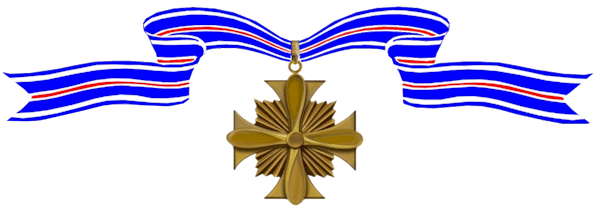Winton Marshall entered service during World War II, and was assigned to fly in defense of the Panama Canal. In the Korean War, as Commander of a Fighter Squadron and Pilot of an F-86 fighter, he became a Korean War ACE, credited with shooting down 6.5 enemy aircraft in aerial combat. He retired in 1977 as a U.S. Air Force Lieutenant General.
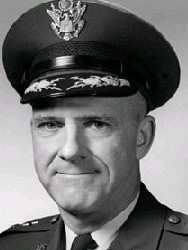
–
Cemetery:
Awards Received
-
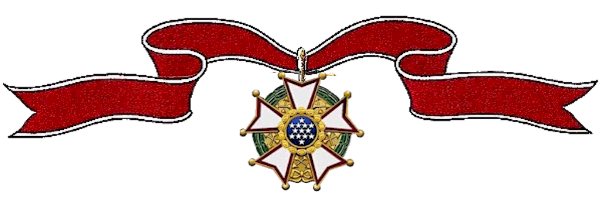
Legion of Merit
-

Legion of Merit
-
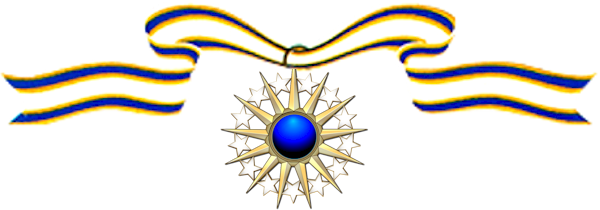
Air Force Distinguished Service Medal
-

Legion of Merit
-

Air Force Distinguished Service Medal
-
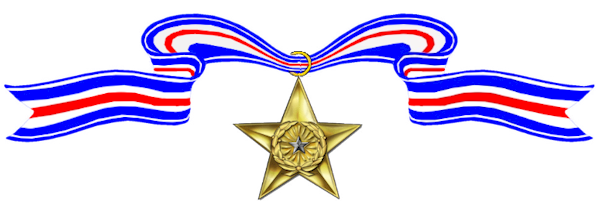
Silver Star
-

Legion of Merit
-
Legion of Merit
Service:
United States Air ForceRank:
ColonelBatallion:
335th Fighter-Interceptor SquadronRegiment:
4th Fighter-Interceptor WingDivision:
5th Air ForceAction Date:
Korean War
(Citation Needed) – SYNOPSIS: Colonel Winton Whittier Marshall (AFSN: 0-9999A), United States Air Force, was awarded the Legion of Merit for exceptionally meritorious conduct in the performance of outstanding services to the Government of the United States as Commanding Officer, 335th Fighter-Interceptor Squadron, 4th Fighter-Interceptor Wing, FIFTH Air Force, in Korea. The singularly distinctive accomplishments of Colonel Marshall and his dedicated contributions in the Service of his Country reflect the highest credit upon himself and the United States Air Force.
-
Legion of Merit

(Citation Needed) – SYNOPSIS: Colonel Winton Whittier Marshall (AFSN: 0-9999A), United States Air Force, was awarded a Bronze Oak Leaf Cluster in lieu of a Second Award of the Legion of Merit for exceptionally meritorious conduct in the performance of outstanding services to the Government of the United States. The singularly distinctive accomplishments of Colonel Marshall and his dedicated contributions in the Service of his Country reflect the highest credit upon himself and the United States Air Force.
-
Air Force Distinguished Service Medal

(Citation Needed) – SYNOPSIS: Lieutenant General Winton Whittier Marshall (AFSN: 0-9999A), United States Air Force, was awarded the Air Force Distinguished Service Medal for exceptionally meritorious and distinguished service in a position of great responsibility to the Government of the United States. The singularly distinctive accomplishments of Lieutenant General Marshall and his dedicated contributions in the Service of his Country reflect the highest credit upon himself and the United States Air Force.
-
Legion of Merit

(Citation Needed) – SYNOPSIS: Lieutenant General Winton Whittier Marshall (AFSN: 0-9999A), United States Air Force, was awarded a Second Bronze Oak Leaf Cluster in lieu of a Third Award of the Legion of Merit for exceptionally meritorious conduct in the performance of outstanding services to the Government of the United States. The singularly distinctive accomplishments of Colonel Marshall and his dedicated contributions in the Service of his Country reflect the highest credit upon himself and the United States Air Force.
-
Air Force Distinguished Service Medal
Service:
United States Air ForceRank:
Lieutenant GeneralAction Date:
June 1975 – September 1977
(Citation Needed) – SYNOPSIS: Lieutenant General Winton Whittier Marshall (AFSN: 0-9999A), United States Air Force, was awarded a Bronze Oak Leaf Cluster in lieu of a Second Award of the Air Force Distinguished Service Medal for exceptionally meritorious and distinguished service in a position of great responsibility to the Government of the United States, culminating as Deputy Commander in Chief, U.S. Readiness Command, at MacDill Air Force Base, Florida, from June 1975 to September 1977. The singularly distinctive accomplishments of Lieutenant General Marshall and his dedicated contributions in the Service of his Country reflect the highest credit upon himself and the United States Air Force.
-
Silver Star
Service:
United States Air ForceRank:
ColonelBatallion:
335th Fighter-Interceptor SquadronRegiment:
4th Fighter-Interceptor GroupDivision:
5th Air ForceAction Date:
August 14, 1951
Headquarters, Far East Air Forces, General Orders No. 33 (January 17, 1952)The President of the United States of America, authorized by Act of Congress July 9, 1918, takes pleasure in presenting the Silver Star to Colonel Winton Whittier Marshall (AFSN: 0-9999A), United States Air Force, for gallantry in action as Pilot of an F-86 Sabrejet Fighter-Bomber, in action in aerial combat over North Korea on 30 November 1951. While leading a squadron of twelve F-86 aircraft in the 335th Fighter-Interceptor Squadron, 4th Fighter-Interceptor Group, FIFTH Air Force, on a combat air patrol, he sighted nine TU-2 enemy bombers headed southward in the area of Namsi-Dong, North Korea, escorted by large numbers of fighter aircraft. Although realizing that the friendly forces were greatly outnumbered and were faced with intense and accurate cannon fire, Colonel Marshall displayed outstanding courage and tactical skill in leading his squadron in an immediate and aggressive attack on the enemy bombers. He coolly and skillfully deployed his forces to obtain the maximum tactical advantage and then led them in on the initial attack, during which he personally destroyed one TU-2 bomber. Expertly regrouping his force, he launched successive and continuing attacks affording the enemy no opportunity to reorganize. On the third pass, his F-86 sustained major damage from two direct hits by enemy cannon fire. One hit was in the leading edge of the left wing, the projectile exploding in the area of the fuel cell. The second projectile exploded against the head rest, destroying the canopy completely and badly damaging his parachute. He received numerous lacerations about the face, head, neck and back. Partially stunned from the force of the second explosion he recovered control of his aircraft but found himself separated from his flight. Although bleeding profusely and suffering from severe shock and exposure to sub-freezing temperatures and despite the sluggish reactions of his damaged aircraft, he rejoined his comrades in battle, against overwhelming odds. Totally disregarding his own safety, Colonel Marshall continued to carry the offensive, and largely through his own inspiring leadership and heroic personal example, the enemy formation was completely disrupted. When he has expended his ammunition and was low on fuel, he was forced to break off the attack and return to home base. Despite his wounds and the adverse flight conditions imposed by loss of his canopy, complicated further by the fact that he was without radio communication or radio compass as a result of battle damage, he managed to land his F-86 safely. At the time of this deed, Colonel Marshall had flown a total of 64 missions in the Korean campaign. The gallantry and selfless devotion to duty displayed by Colonel Marshall in this action of high personal courage reflected great credit upon himself, the FAR EAST Air Forces, and the United States Air Force.
-
Legion of Merit

(Citation Needed) – SYNOPSIS: Lieutenant General Winton Whittier Marshall (AFSN: 0-9999A), United States Air Force, was awarded a Third Bronze Oak Leaf Cluster in lieu of a Fourth Award of the Legion of Merit for exceptionally meritorious conduct in the performance of outstanding services to the Government of the United States. The singularly distinctive accomplishments of Colonel Marshall and his dedicated contributions in the Service of his Country reflect the highest credit upon himself and the United States Air Force.


